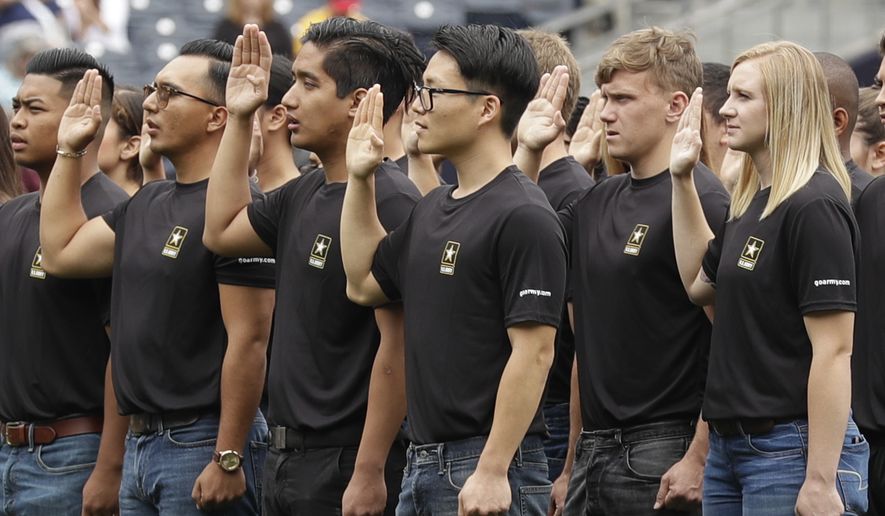The Army missed its recruiting goal this year for the first time in well over a decade, which officials blamed on increased competition in a strong private-sector economy and the fact that “nobody wants to talk” to recruiters on the phone or face to face these days.
For the fiscal year ending Sept. 30, Army leaders said they pulled in about 70,000 new recruits. The goal was 76,500.
It’s the first time the Army fell short of its target since 2005, and all of the other branches of the military hit their benchmarks this year.
“We obviously thought we would do better than that,” Maj. Gen. Joe Calloway, director of military personnel management for the Army, told the Associated Press, adding that in recent years the Army had pulled in at least 3,000 more recruits than expected.
“There was hope that they would be able to do the same thing this year,” he said. “That did not pan out.”
Mr. Calloway said the strong economy is partly to blame, as at least some potential recruits have chosen against enlisting and instead sought out jobs in the private sector. That reality comes even as the Army has relaxed some of its rules on permitting recruits with previous marijuana use or certain health issues.
But officials said there’s an even deeper problem: In the digital age, it’s become increasingly difficult to even have a conversation with potential soldiers.
“Nobody wants to talk to us,” Maj. Gen. Frank Muth, head of Army Recruiting command, told the AP. “If we do get a hold of potential recruit, they actually don’t want to talk to you on the phone. What they want to do is meet you online first in some type of digital format and then, if they agree to meet with you, you can get the call.”
The Pentagon also has bemoaned the fact that a decreasing number of young Americans even qualify for military service in the first place. Defense Secretary James Mattis said in May that only 28 percent of 18- to 24-year-old males and females qualify to be a private in the Army.
“We are no longer receiving people from the society who are as much in step with the qualities that our institution must have for success on the battlefield,” he said.
“This is a combination of illicit drug abuse, illicit drug use, obesity is probably the biggest one, morals, you know, just arrests, that sort of thing and there are other reasons,” he continued, adding academic failings as another major factor.
• Ben Wolfgang can be reached at bwolfgang@washingtontimes.com.




Please read our comment policy before commenting.